- Home/
- Play Is Plenty: Why Were Choosing Play, Every Day
Play Is Plenty: Why Were Choosing Play, Every Day
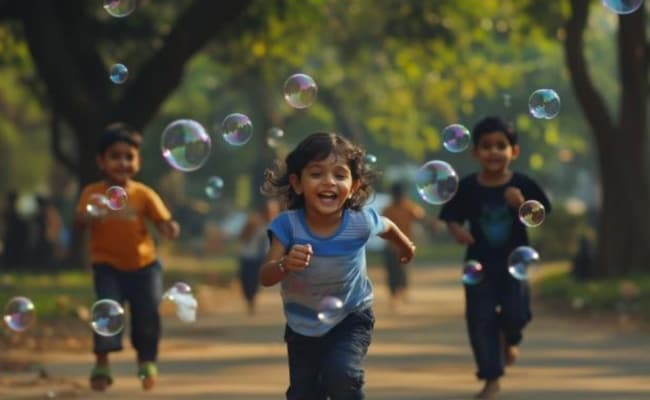
New Delhi: When was the last time you played peek-a-boo?
In every gurgle, giggle, or babble that follows a moment of play, something beautiful is happening. Bonds are being built. Brains are being shaped. Confidence is finding its roots. Yet too often, play gets sidelined as “just fun”—a break from learning, not the start of it.
This International Day of Play, UNICEF India, NDTV, and EkStep Foundation have come together to rally for the importance of play, and are reinforcing that play needs to be promoted and protected.
Whether it's peek-a-boo with a baby, a made-up story with a toddler, or a game in the neighbourhood park with a 6-year-old, play is how children learn best. It's not extra. It's essential.
Why Play Matters
Play supports children's growth at every age. From the tiniest baby just learning to track your face, to a 5-year-old inventing games with sticks and shadows—play is how children understand themselves and the world.
Play builds more than skills—it builds people. From social and emotional learning to creativity and confidence, play supports healthy development across all stages of childhood.
But here's what we sometimes forget: play helps us too.
For parents and caregivers, moments of shared play can ease stress, build routine, and strengthen relationships. That's why this campaign focuses on something simple: finding a little time for play, every day.
Every Stage Brings a New Kind of Play
To support parents and caregivers, we've created age-specific play cards with simple, joyful ideas you can try at home. These are now available to download in multiple Indian languages, helping you engage in ways that feel familiar and local.
Here's a quick look at what's inside:
0–9 Months
Simple actions like making eye contact, responding to coos, gently moving limbs to rhythm—these help babies feel secure and seen. That “peek-a-boo” you played today? It's more powerful than you think
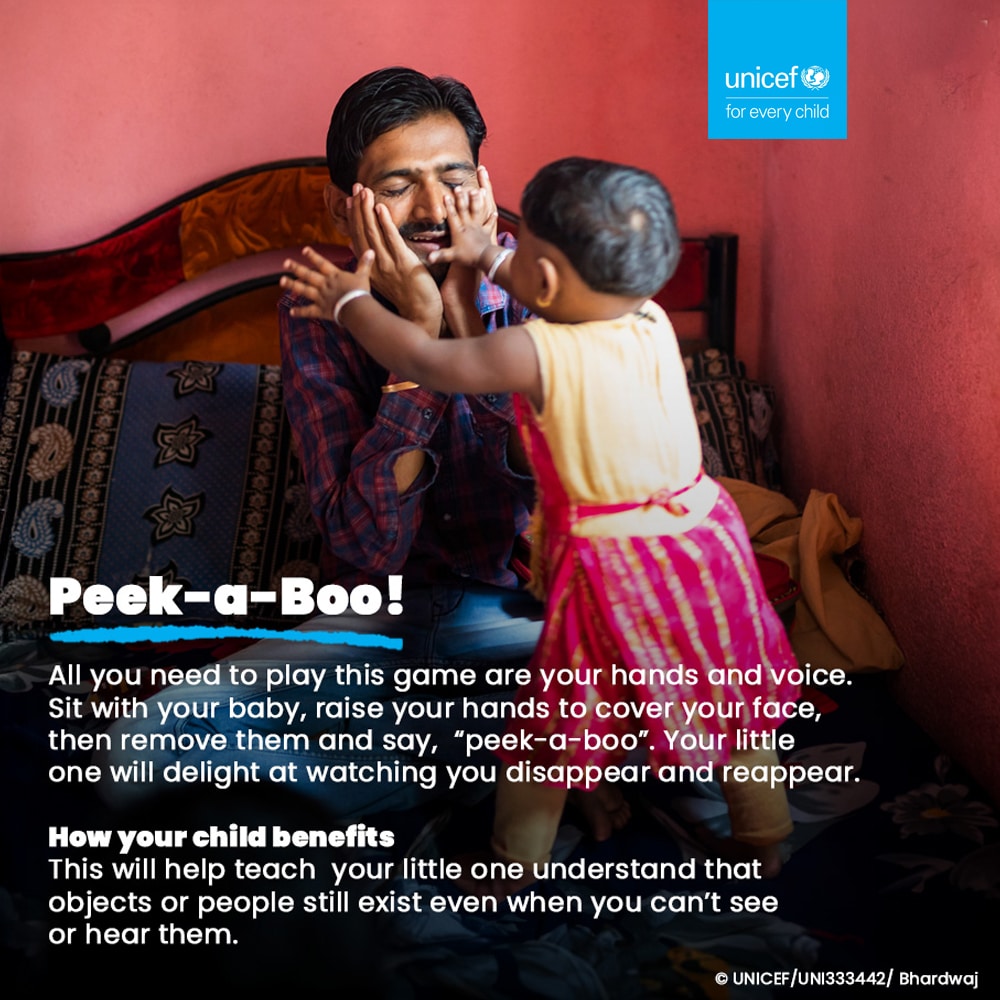
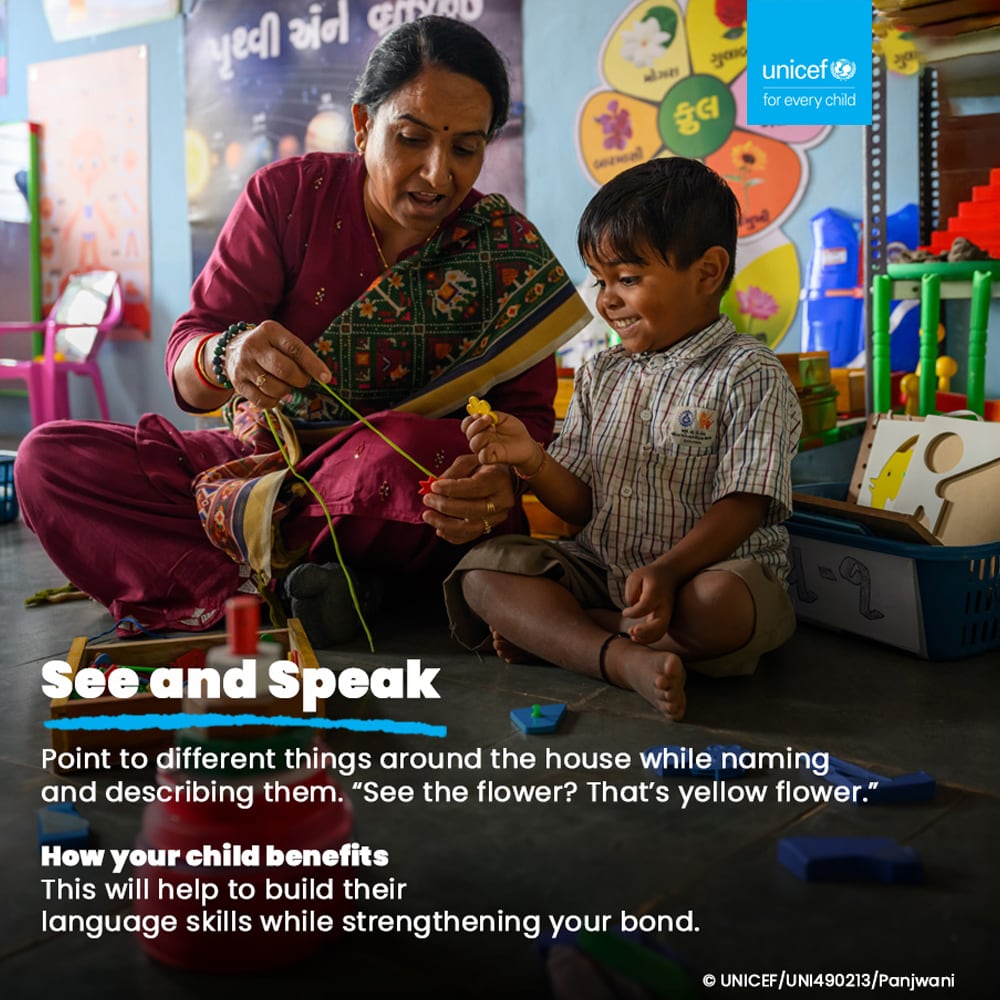
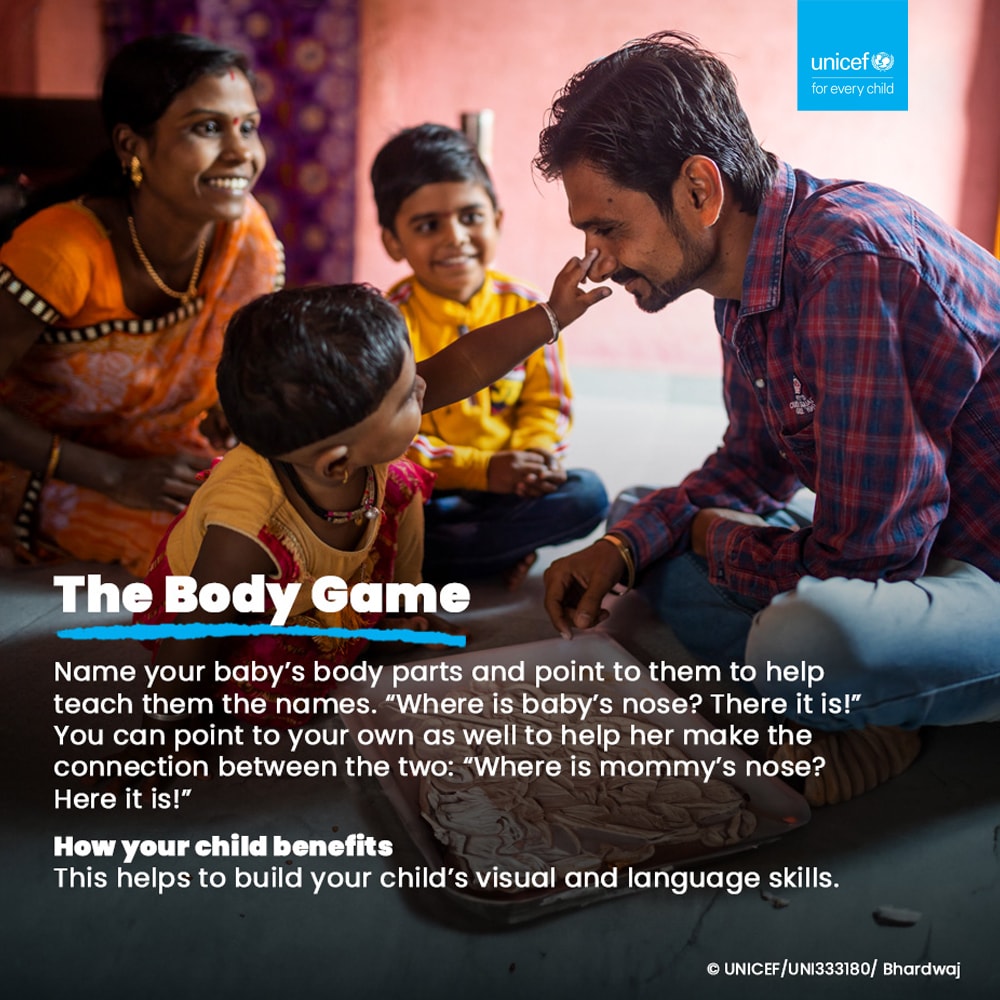
1–2 Years
Toddlers love repetition and surprise. Think rolling a ball, hiding and finding objects, or imitating animal sounds. This stage is about movement, mimicry, and massive curiosity.
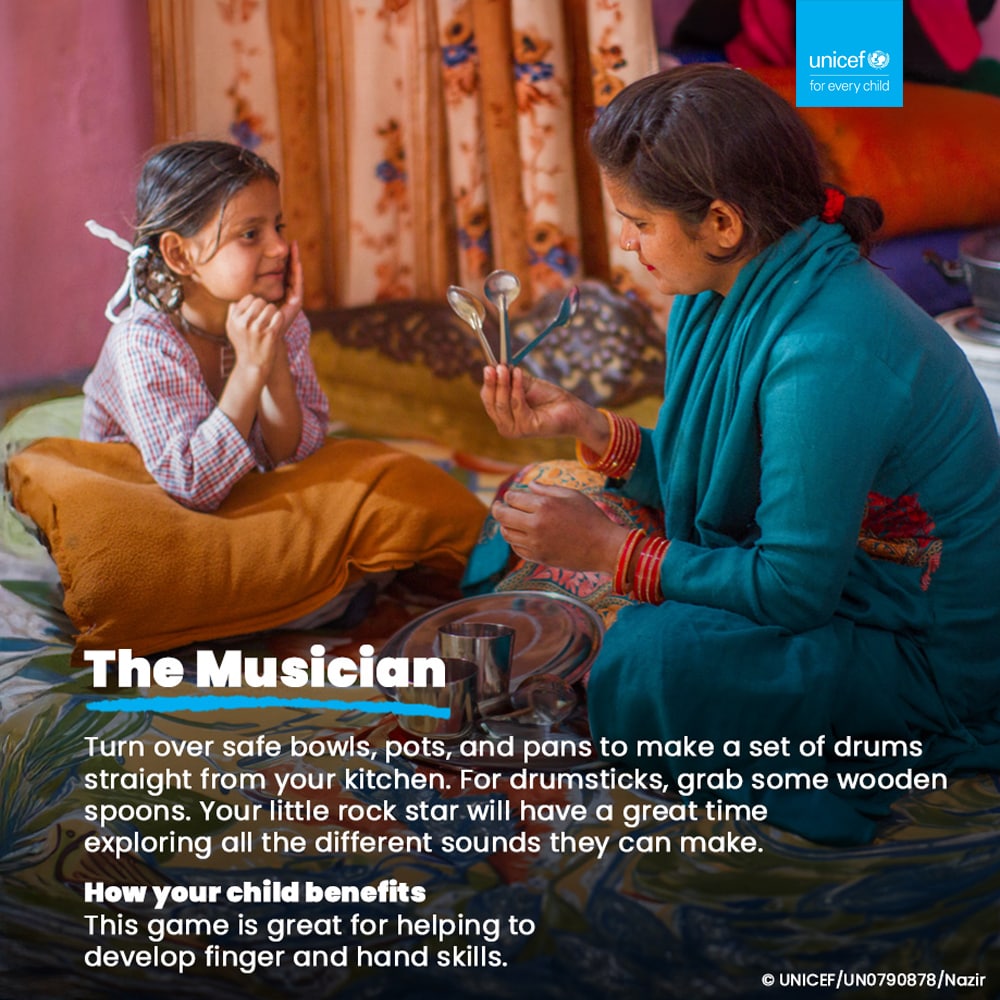
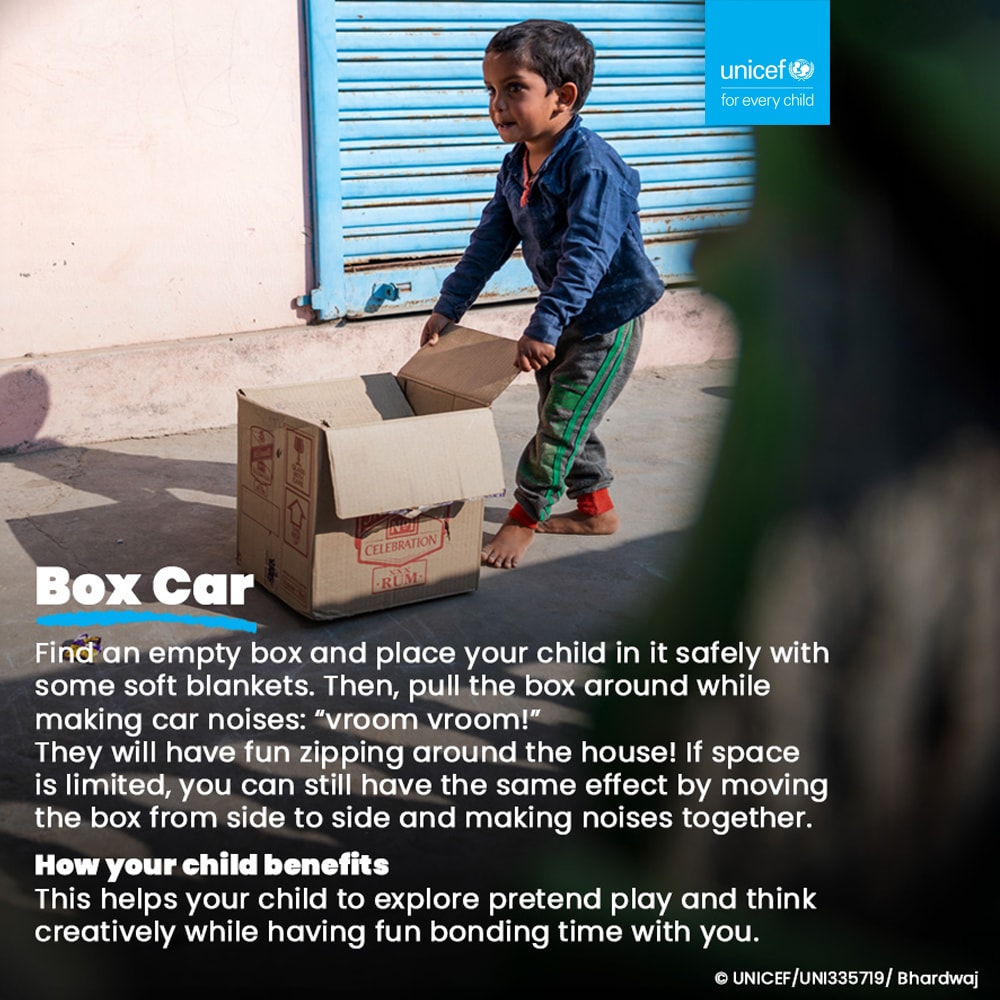
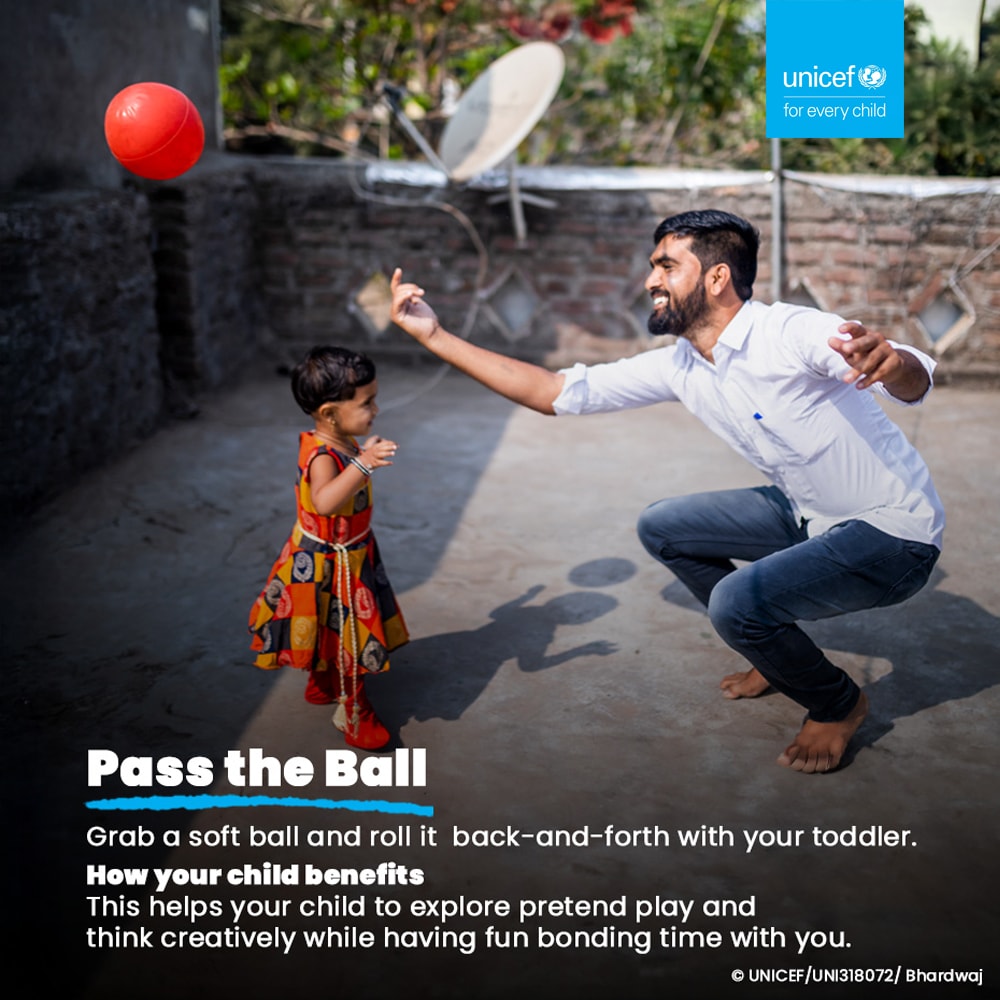
3–4 Years
Preschoolers are little storytellers. They invent, imagine, and role-play. Use cardboard boxes, kitchen spoons, or storybooks as props for play. There's no “right” way—only your child's way.

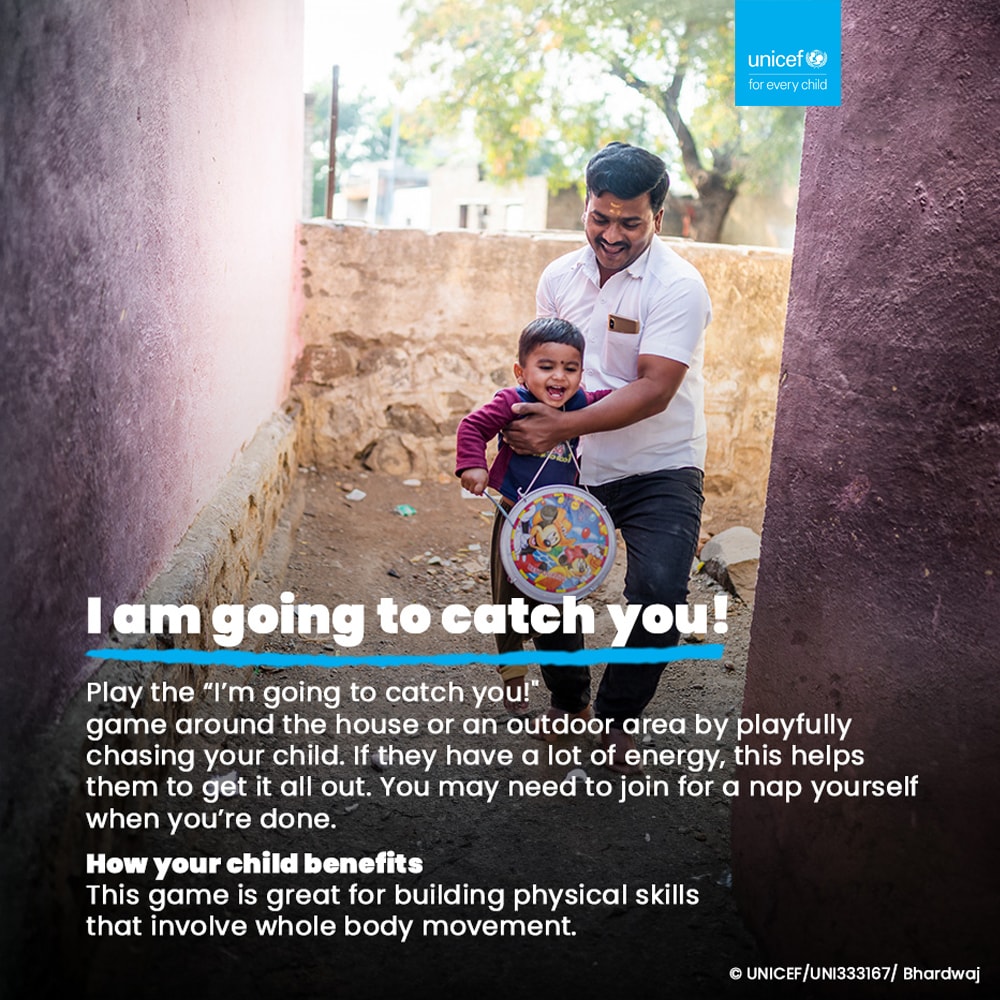
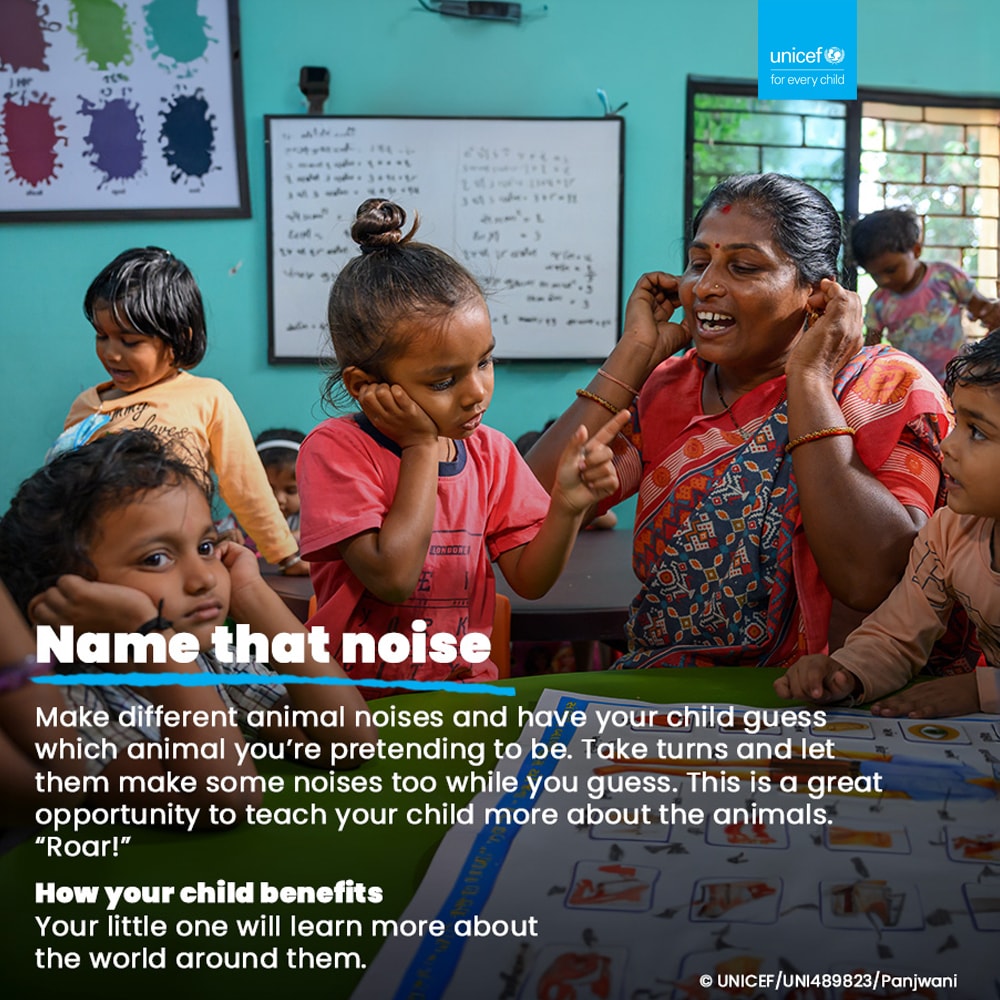
5–8 Years
At this age, children start forming their own rules. Let them take the lead in creating games. Whether it's hopscotch, helping you cook, or setting up a puppet show, the point is not perfection—it's participation.
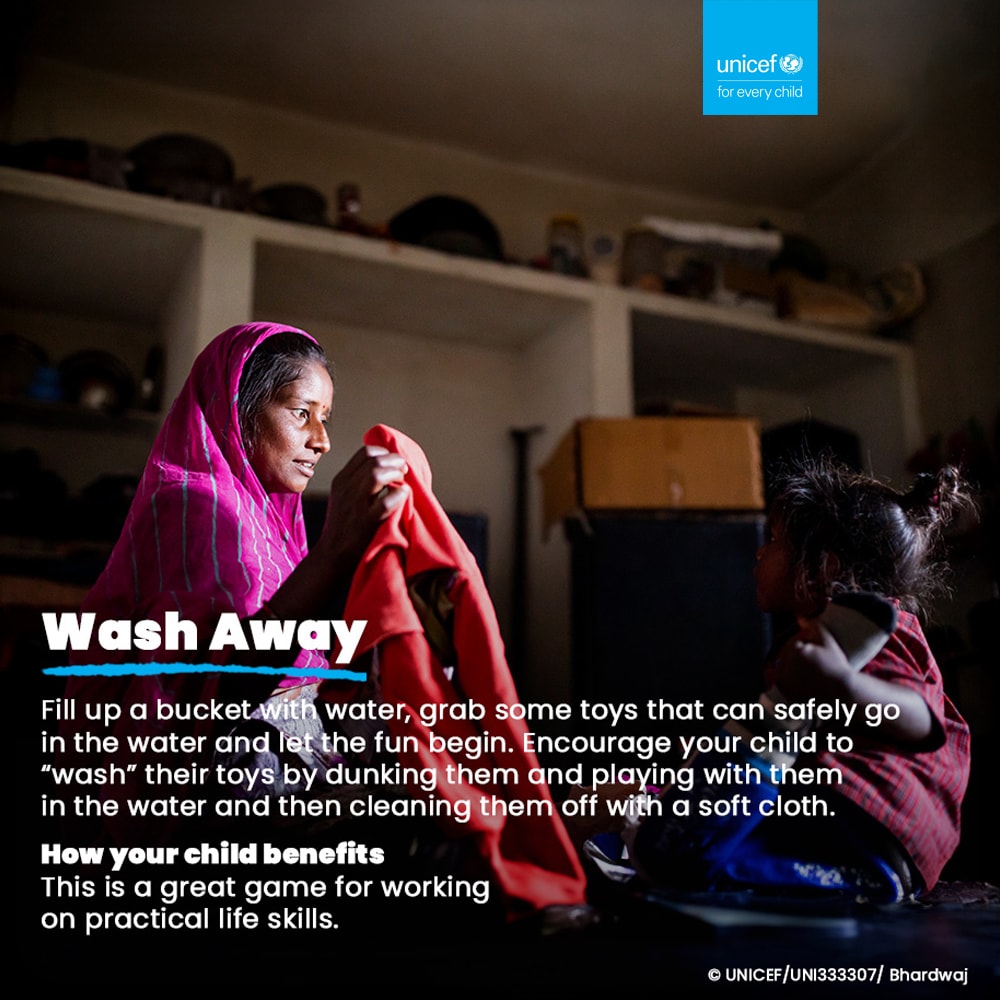
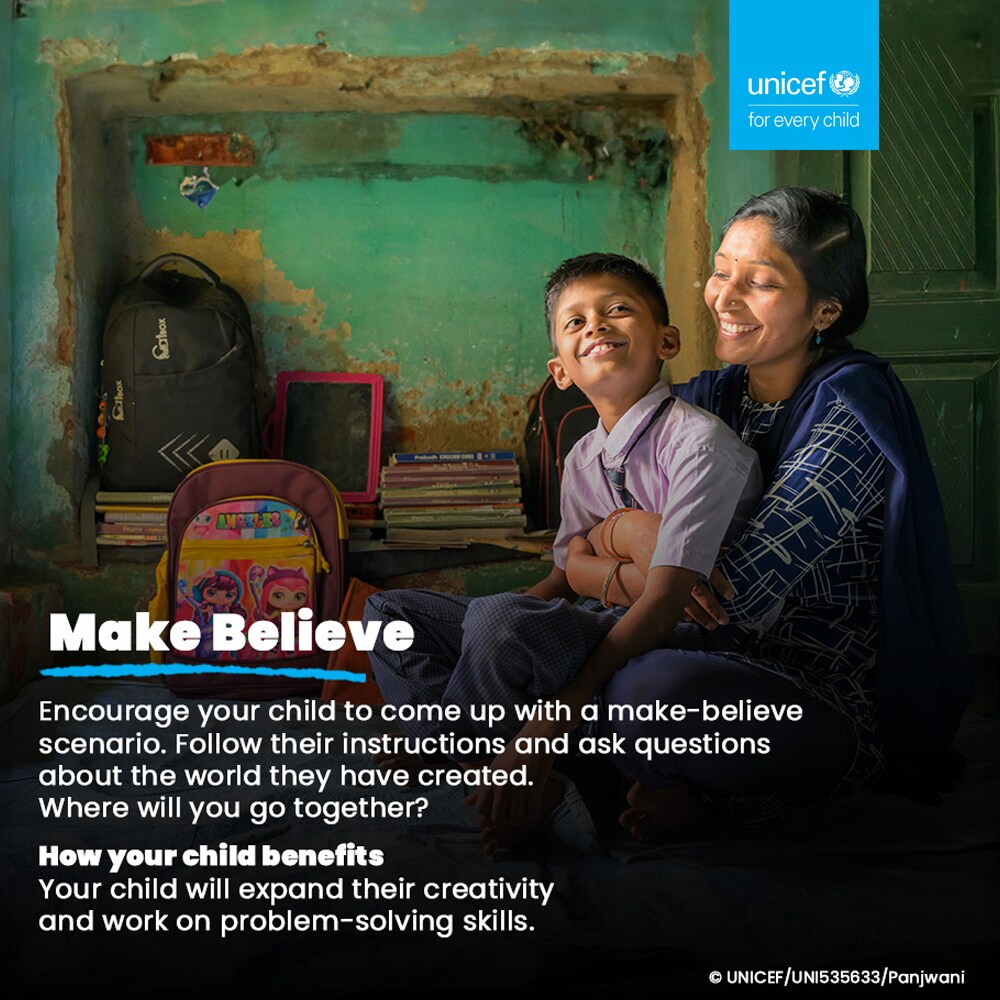
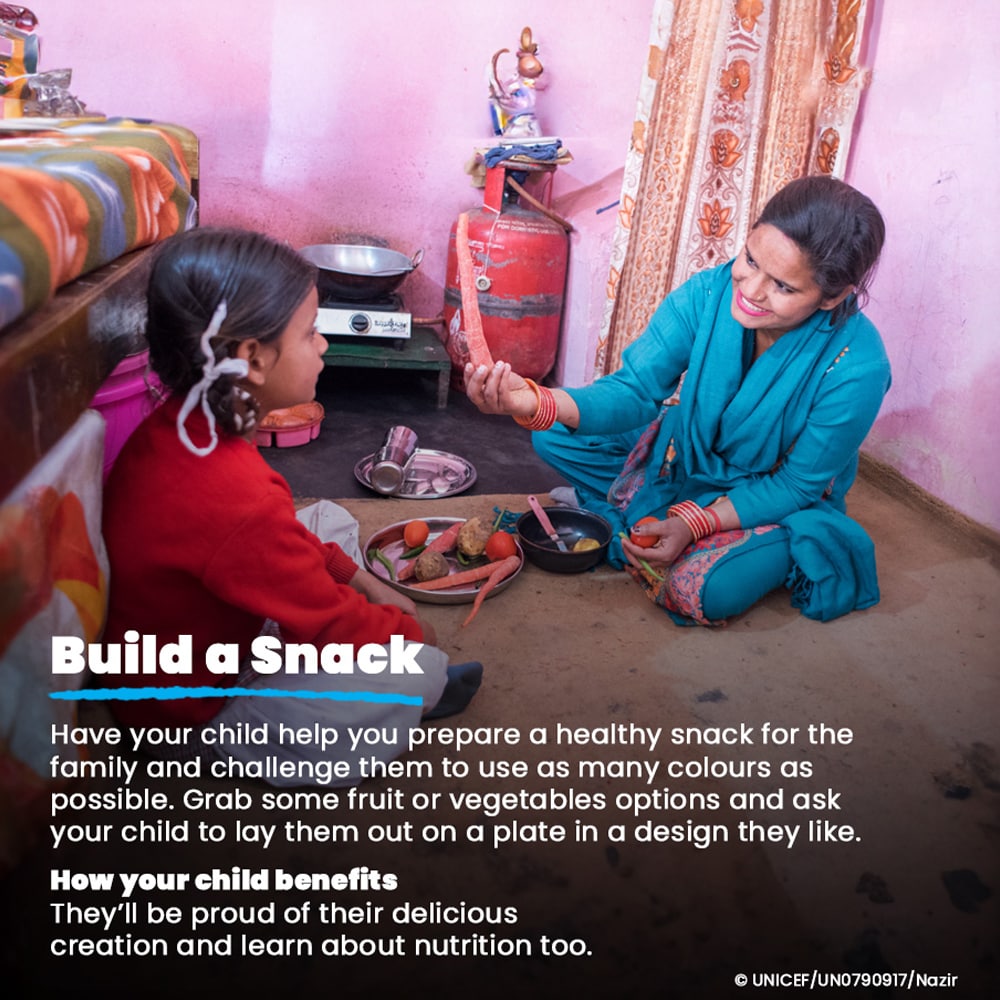
Each set of cards offers short, joyful ideas that make it easier to add play into your everyday routines.
Play Is Always Local
Every part of India has its own play culture—its own words, songs, and styles. There are dozens of ways to say “Let's play!” in every language.
That's why these cards are available in multiple Indian languages—to help you play in a way that feels natural and familiar. Language matters. Culture matters. They make play even more meaningful.
Download and Share
You can download the play cards here and share them widely—with other parents, grandparents, teachers, anganwadi workers, and anyone else who cares for children.
They're free, simple to use, and can be printed or shared on WhatsApp. No login, no sign-up. Just easy access to meaningful play.
Just a Little, Every Day
In a world that often feels rushed and distracted, play brings us back to what matters: presence.
So this International Day of Play, we're not asking you to buy new toys or create elaborate games. We're just asking you to pause. For five minutes. For a song. For a giggle. For a silly dance. For one moment of undivided joy. It all counts.
Because play is plenty—for every child, at every stage.
And for every parent, it's a reminder: the small stuff is the big stuff. #ChoosePlayEveryday
These cards were thoughtfully designed by UNICEF India to bring everyday play into every home—with heart, science, and simplicity. The cards were translated into Indian with the support of EkStep Foundation to make them widely accessible.
About Us
Bachpan Manao - is a social mission about making the most of the early childhood opportunity for learning and growth. It is about recognizing that. Learning in early childhood (0-8) happens best through joy and play.
Making the most of this opportunity means:
1. CELEBRATING CHILDHOOD
Allowing children (and yourself) to celebrate and enjoy their childhood fully
2. SEEDING SUCCESS
Giving children the best foundation for all-round development
3. DRIVING EQUITY
Enabling skill-building, which will drive equity over time
